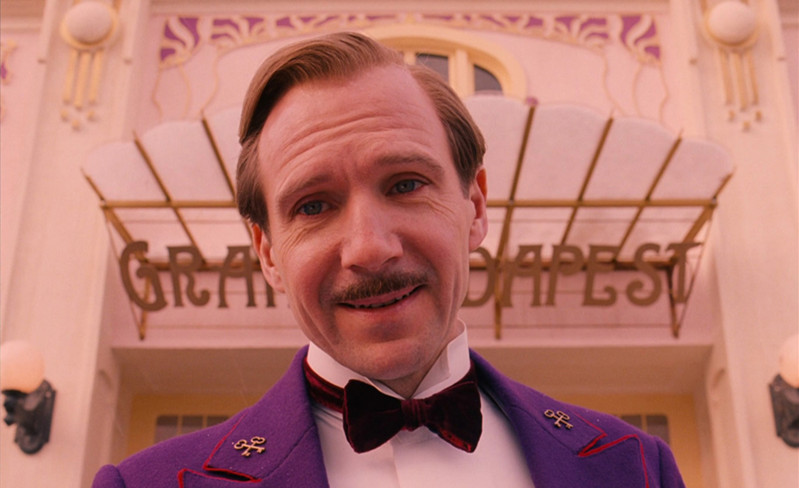
Many auteurs are praised by their range — Paul Thomas Anderson, the Coen Brothers, Altman, Kubrick, Scorsese… the list goes on and on. The biggest virtue for these masters lies in how they’re not bound to any genre or style but to their own greatness. Wes Anderson is a man of many qualities but not that one in particular. In a sense, watching one of his movies is like ordering up your favorite dish at a restaurant. Deep down, you assume there must be better things in the menu, but at least you know what you’re getting into and in all likelihood won’t regret your choice.
You either love him or hate him, but with Anderson there’s no mistaking what dish you’re having. If you have a penchant for symmetrical framing, gaudy production design, inventive camerawork and zany humor, he’s your guy. And what he may lack in variety, he more than makes up in sheer consistency. More than two decades of filmmaking of the highest degree is more than evidence that he belongs in the same conversation with the very best directors of this era.
Wes Anderson has turned his style into his own manifesto — one he abides in each of his ten films. For him, the screen is a canvas to be filled as intricately and aesthetically-pleasing as possible. Throughout the years, he’s become a household name in the industry — almost a genre of his own — simply because there’s nobody quite like him.
Hot on the heels of The French Dispatch wide release, there’s no better timing than now to make a trip down memory lane and go through every Wes Anderson movie to date.
10. Bottle Rocket (1996)
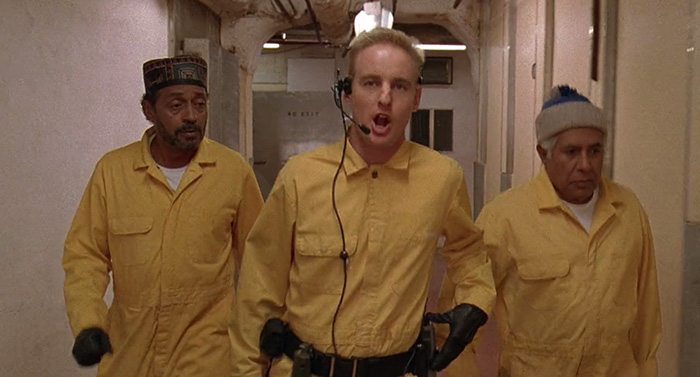
Wes Anderson never flinched from ambition. As is the case with the best of auteurs, even his misfires and supposedly ‘minor’ work are, by normal standards, enjoyable affairs. Inevitably, some film had to rank dead last in lists like this, but one should keep in mind it’s only within the context of a consistently great body of work.
Anchored by two charming performances courtesy of the Wilson brothers, Bottle Rocket chronicles the endeavors of two erratic friends who scheme a number of heists together. Wes Anderson hadn’t found his footing just yet when he decided to reimagine his 13-minute short into a feature film, and the end result can feel a bit rough around the edges. Granted, it’s a more than serviceable debut that manages to find a proper balance between drama and comedy while offering glimpses of the same motifs that would become staples in his career.
But still, there’s a reason why it’s always been neglected among fans, as it feels by far the most detached from Anderson’s unmistakable flair. The pacing really suffers and the story can feel a bit meandering at times, especially when you pitch it against any of his rapid-fire ensemble pieces. Overall, Bottle Rocket is definitely worth a watch for any Anderson completionist who wants to see the film that put him on the map as one of the most intriguing directors in the business.
9. The Life Aquatic with Steve Zissou (2004)
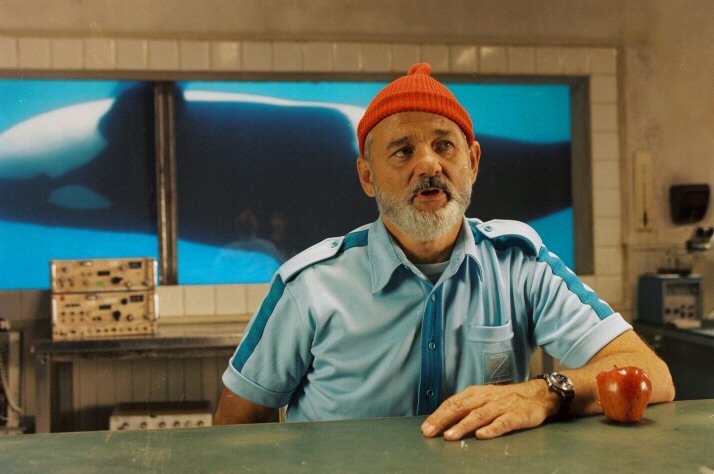
No modern director comes even close to working with as many A-list actors as Wes Anderson does. If there’s a common thread between all ten of his films is the nauseatingly stacked line-up of stars that brings them to life. From common collaborators (Bill Murray, Owen Wilson, Willem Dafoe) to Oscar-winning actresses (Cate Blanchett, Anjelica Huston), Life Aquatic is no exception to the rule. In the case of this film in particular, it proves to be both its blessing and curse. With such a plethora of fascinating characters at his disposal, Wes Anderson is in a race with himself to give each one their moment to shine, and the overarching plot can feel a bit bloated as a result.
The movie throws us into a journey of self-discovery across the seven seas aboard the Belafonte, renowned-oceanographer Steve Zissou’s boat. For the titular character, the quest to crack down and destroy the elusive shark that killed his partner becomes a cathartic adventure where he gets the chance of confronting his inner demons and rekindling his relationship with his alleged son. Anderson once again covers familiar territory here — from middle-aged existentialism, coping with loss and grief to surrogate family dynamics.
As a textbook example of both his strengths and weaknesses as a filmmaker, Life Aquatic is a more than solid entry point for those eager to dive right into Anderson’s work.
8. Rushmore (1998)

Rushmore was, in many ways, Wes Anderson’s coming-out party — a film where he showed he had overcome the growing pains of Bottle Rocket and finally come to his own as a filmmaker. The story puts us in the shoes of Max Fischer, a socially-awkward, aimless teenager who’s still trying to figure out his interests and life goals. Long before Scott Pilgrim, Juno, Booksmart and the tidal wave of nerdy coming-of-age stories normalized it in the following decades, making a film in 1998 about a neurotic — borderline unbearable — teen was gutsy (let alone one who’s infatuated with his high school teacher).
Unsurprisingly, Wes Anderson’s style lends itself perfectly to the awkwardness of adolescence, and by his sophomore effort he’d fully ironed out his quirky humor and deadpan deliveries. Paternal figures, or lack thereof, take center stage in most of his stories, from Life Aquatic, Moonrise Kingdom to Budapest Hotel. Max, who befriends the father of his classmate to fill that void, joins Anderson’s extensive list of young characters longing for a strong role model.
Few films illustrate the trials and tribulations of being a social misfit better than Rushmore, and as long as you can stomach some occasional obnoxious behavior from its main character, you’re in for a treat.
7. Moonrise Kingdom (2012)
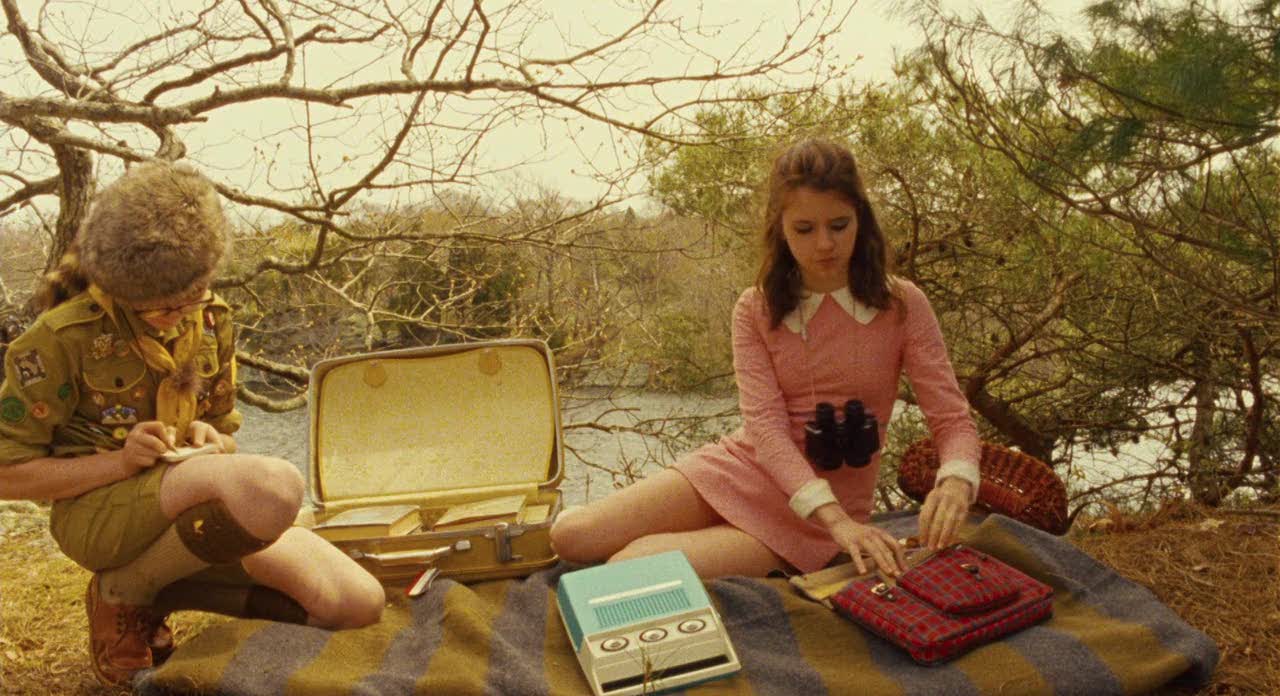
All Wes Anderson’s movies share the same whimsical essence — innocuous but adventurous narratives wrapped in cozy color palettes. In that regard, no current director challenges us to embrace our inner child as much as him. In Moonrise Kingdom, he captured that magical sense of wonder and discovery that comes from an early age, where the whole world seems at your grasp for the taking. The story begins with two rebellious 12-year-olds, Sam and Suzy, who decide to run away together — a thought that’s crossed all our minds at least once at that particular age. Drenched in that yellow-infused filter Wes’ loves so much, a 1960’s New England island serves as the ideal backdrop for what’s easily one of his best-looking films to date.
Once again, Moonrise Kingdom touches themes of authoritative figures in youth through the Scout Master, Suzy’s parents and the police captain. On a similar note as Rushmore, it perfectly depicts the growing alienation between a teenager and its environment, and the need to assess oneself by defying authority.
In terms of how it stacks up against the rest of his oeuvre, Moonrise has grown to be quite divisive, with some fans hailing it as one of Wes’ finest while others argue it lacks emotional depth. Overall, the film seems like one Anderson made on autopilot by indulging on his biggest tendencies and idiosyncracies — which isn’t really a knock because it does work this time around.
6. The Darjeeling Limited (2007)
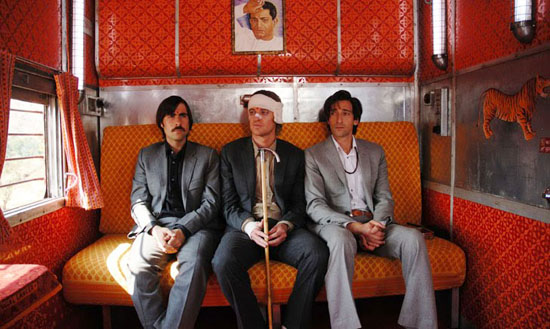
One common criticism that gets thrown around often when it comes to Wes Anderson is that his meticulously crafted affairs are — for all their visual splendor — emotionally barren. We return to the same-old debate of style over substance, whether it applies in his case and even if it should be held as a valuable form of criticism in a visual medium like cinema. Whatever the case may be, those who dismiss the entirety of Anderson’s work as frivolous affairs with no emotional backbone will find a pretty solid rebuttal to their claims in The Darjeeling Limited.
Wes’ acolytes might be surprised at how high this film checks in in this list. After all, arguably no movie of his has been met with such a lukewarm reception. The most generous of critics deemed Darjeeling as an uninspired retreat to overtly familiar themes and tropes, while the most incisive dubbed it as an unusual blunder that blemished Anderson’s otherwise impeccable track record.
Following their father’s death, three bickering brothers are forced to bury the hatchet and do some much-needed self-reflection during a train trip across India. Far from being a flop, The Darjeeling Limited is in reality one of the most rewarding watches in his oeuvre. Other than The Royal Tenenbaums, this is Wes Anderson’s ultimate bittersweet story — one that’s not afraid of going in darker directions than usual in order to explore siblings’ dynamics, coping with grief and healing through bonding.